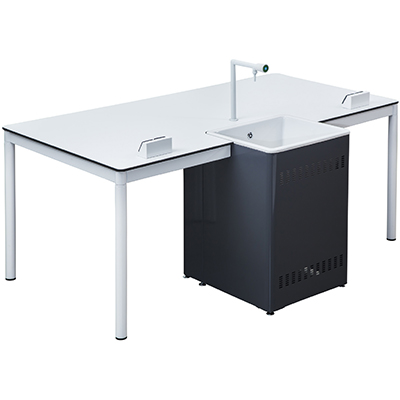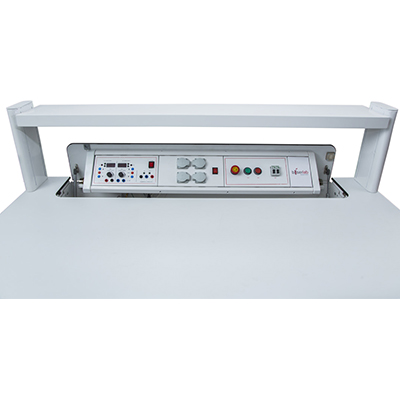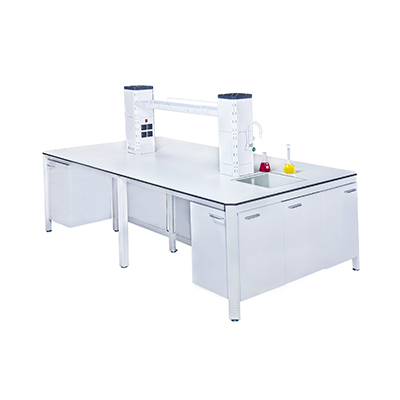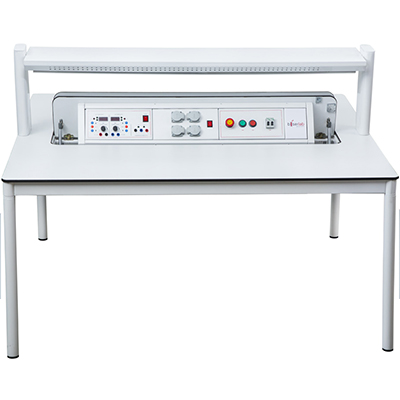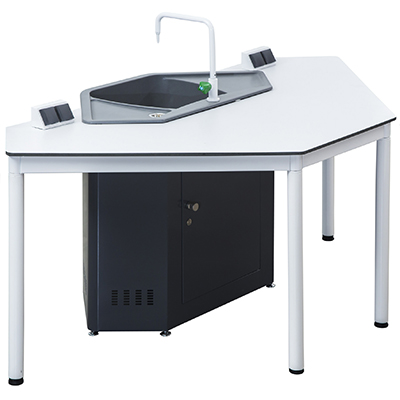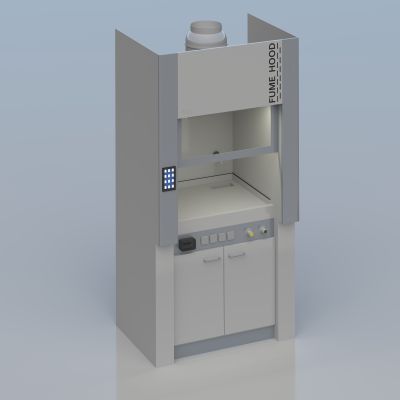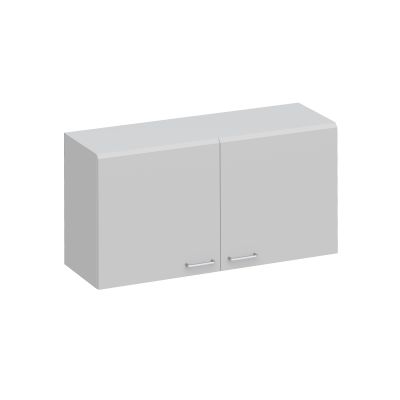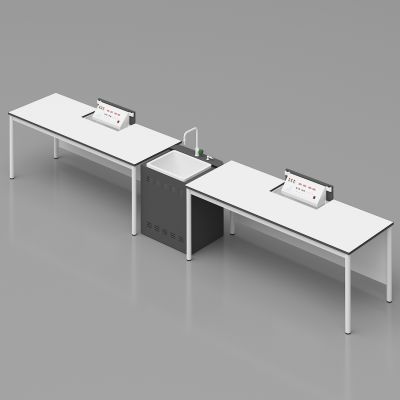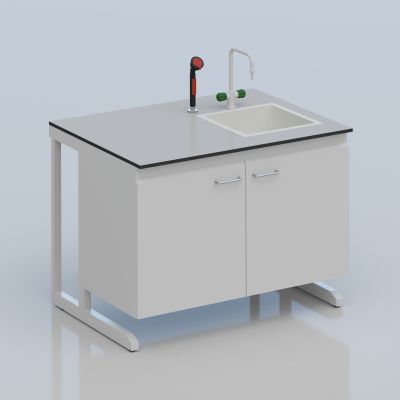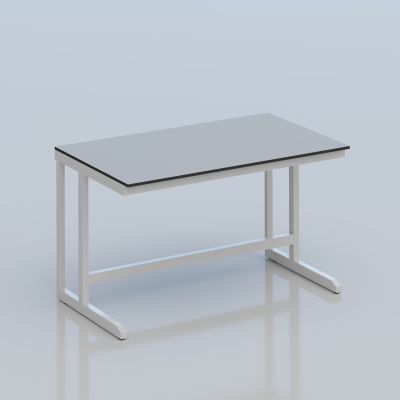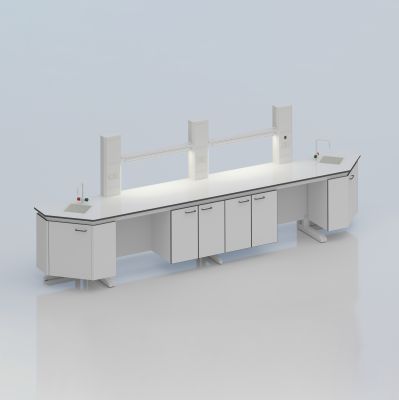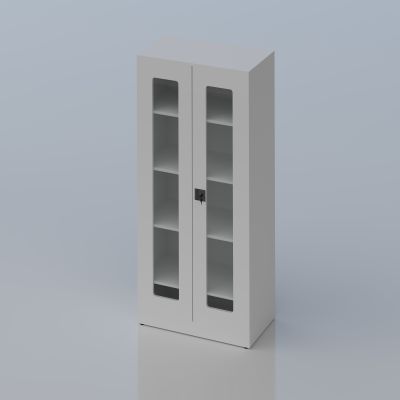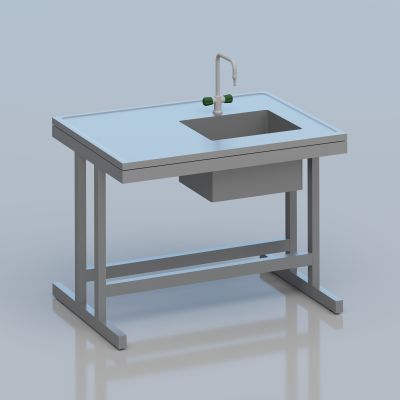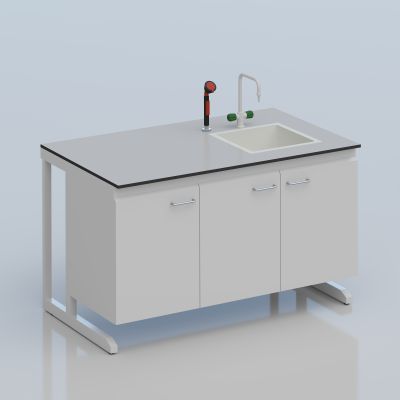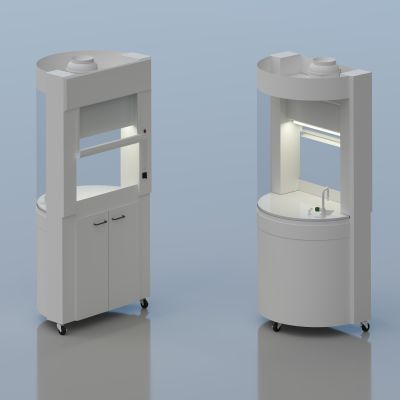Importance of Laboratory Furniture and Classrooms
Laboratory furniture is specially designed to support research and experimentation in classrooms for disciplines like physics, chemistry, and biology. These furniture items are designed with durability, ergonomics, and functionality in mind to ensure user safety and efficiency.
What is Laboratory Furniture?
Laboratory furniture refers to items used in spaces dedicated to scientific research and experiments, enhancing functionality. These include laboratory benches, chemical storage cabinets, fume hoods, washing units, and more.
Laboratory Classrooms and Bench Types
Chemistry Laboratory Furniture
Furniture used in chemistry laboratories must be resistant to acids and chemicals. Benchtop surfaces are typically made from compact laminate or stainless steel. Gas connections and washing units are also commonly found in these spaces.
Given the hazardous chemicals, chemistry labs require special safety measures. Fume hoods are used to remove harmful gases, and fire safety equipment, along with eye/face washing units, is essential.
Suggested Furniture Layout:
- Special cabinets for storing chemicals.
- Gas valves and electrical outlets on the bench.
- Chemical-resistant flooring.
Physics Laboratory Furniture
Although fewer chemicals are used in physics experiments, benches suitable for precision instruments are required. Electrical connections and large surface areas are prominent features.
For stability, physics laboratories should use vibration-resistant and balanced benches. These spaces often require large work areas for experiment setups.
Suggested Furniture Layout:
- Spacious and flat bench surfaces.
- Insulated surfaces for electrical and magnetic experiments.
- Lighting and electrical control units.
Biology Laboratory Furniture
In biology classrooms, where sterilization and hygiene are paramount, easily cleanable surfaces are preferred. The furniture should accommodate equipment like microscopes.
Sterile working environments are crucial in biology labs. Ergonomic designs are ideal for microscopic analysis and cell culture work. Washing areas and waste management systems should also be included.
Suggested Furniture Layout:
- Dedicated areas for microscopes.
- Cabinets for sterile materials.
- Appropriate containers and areas for waste management.
Features of Laboratory Benches
The durability of laboratory furniture depends on the quality of the materials used. The most commonly preferred materials are:
- Compact Laminate: Resistant to chemicals and moisture, with a long lifespan.
- Stainless Steel: Ideal for hygiene-sensitive areas, resistant to heat and chemicals.
- Epoxy Resin: A surface material preferred in chemistry and biology laboratories for its resistance to acids.
Additional Features:
- Durability: Resistant to scratches, chemicals, and heat.
- Modular Design: Expandable and portable models available for changing needs.
- Safety: Designed with secure electrical and gas connections.
Advantages of Modern Laboratory Furniture
- Functionality: Supports multiple experiments simultaneously.
- Aesthetic Design: Ensures a neat and modern laboratory appearance.
- Longevity: Built with high-quality materials for extended use.
What to Consider When Buying Laboratory Furniture
- Needs Analysis: Identify the types of benches and cabinets suitable for your purposes.
- Quality Certifications: Verify compliance with quality standards.
- Modularity: Opt for models that can be expanded to meet future requirements.
- Safety Standards: Prioritize designs with secure electrical, gas, and water connections.
Ergonomics and User Comfort in Laboratories
Ergonomics in laboratories is crucial for ensuring user comfort and health during long working hours. Work surfaces should be adjustable in height, and frequently used equipment should be easily accessible.
Benefits of Ergonomic Arrangements:
- Increased efficiency.
- Prevention of musculoskeletal issues.
- Enhanced safety during work.
In conclusion, well-selected laboratory furniture and benches enhance the efficiency of scientific studies while ensuring user safety. These specially designed products for laboratory classrooms are an integral part of modern education and research processes. Laboratory furniture forms the foundation of contemporary scientific studies, offering a blend of safety and functionality. Proper furniture and bench choices create safer and more efficient laboratory environments. Furniture tailored for physics, chemistry, and biology classrooms contributes significantly to the education and research world with their durable and long-lasting structures.

